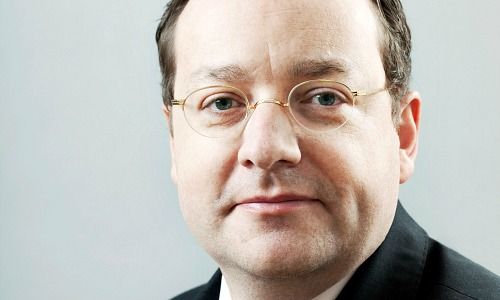Let us face it: the performance of emerging markets has been rather disappointing after the financial crisis of 2008/09. So, what can investors do for the next 10 years, Christian Gast asks in his essay for finews.first.
This article is published on finews.first, a forum for authors specialized in economic and financial topics.
After a swift recovery in 2009, emerging markets (EM) went sideways whereas developed markets (DM) have more than doubled. That was everything but obvious at the time when investors argued for a new normal in terms of developed market growth impaired by the debt excesses of the past.
So, chasing GDP growth seemed only natural. Despite the sector bias of EM towards materials and lower technology exposure, lack of governance and protection of shareholder interests are the other important factors can help to explain the underperformance versus developed markets. So, what can investors do for the next 10 years? Is there a way to benefit from cheaper valuations and higher yields in EM versus DM?
«It seems that ESG factors are not priced»
I believe that the key to a solution can be found in environmental, social, and governance (ESG) and artificial intelligence (AI). Avoiding the worst companies in terms of ESG factors cannot only reduce environmental and social costs to society but also move closer to developed market standards when it comes to governance. This can significantly increase the share of profit which flows to shareholders.
In DM the past performance, as well as valuation measures such as price earnings ratio or dividend yield, do not differ significantly whether ESG filters are applied or not. It seems that ESG factors are not priced. This might change in the future as investors focus more and more on ESG criteria.
«This is good news»
In EM, the difference past performance was significantly higher and valuation measures are richer for ESG portfolios. Higher multiplies for ESG portfolios in EM suggest that the investors price ESG factors.
But the fact that the outperformance of ESG portfolios cannot be fully explained by multiple expansion can be interpreted that indeed ESG factors can strengthen earnings power in EM. This is good news since it suggests that the outperformance of ESG factors in EM might not be just a one-off but sustainable going forward.
«An artificial intelligence enhanced investment process can help»
Nowadays, portfolio managers as everybody else are bombarded with a constant stream of information humans have not (yet) evolved to process. The challenge for humans is not only the shire amount to process/filter but maybe even more important the challenge remain consistent in the approach.
Here, an artificial intelligence enhanced investment process can help to process information consistently and ultimately identify companies with attractive risk/return characteristics at larger breath and at lower cost especially in emerging markets which tend to be less efficient compared to their developed counterparts. All this is ultimately going to benefit investors.
Christian Gast is the CEO of Zurich-based Systematic Investment Management. He joined the firm in November 2018. Previously, he was head iShares and Index Investing Switzerland at Blackrock and acted as member of the Executive Committee of Blackrock Switzerland. Prior to that, he worked for UBS and St. Galler Kantonalbank. He holds a Ph.D. in Banking from the University of Zurich and an MBA from the Economics and Business Studies School Saarbrücken.
Previous contributions: Rudi Bogni, Peter Kurer, Oliver Berger, Rolf Banz, Dieter Ruloff, Werner Vogt, Walter Wittmann, Alfred Mettler, Peter Hody, Robert Holzach, Craig Murray, David Zollinger, Arthur Bolliger, Beat Kappeler, Chris Rowe, Stefan Gerlach, Marc Lussy, Nuno Fernandes, Richard Egger, Maurice Pedergnana, Marco Bargel, Steve Hanke, Urs Schoettli, Ursula Finsterwald, Stefan Kreuzkamp, Oliver Bussmann, Michael Benz, Peter Hody, Albert Steck, Martin Dahinden, Thomas Fedier, Alfred Mettler, Brigitte Strebel, Peter Hody, Mirjam Staub-Bisang, Nicolas Roth, Thorsten Polleit, Kim Iskyan, Stephen Dover, Denise Kenyon-Rouvinez, Christian Dreyer, Kinan Khadam-Al-Jame, Robert Hemmi, Anton Affentranger, Yves Mirabaud, Katharina Bart, Frédéric Papp, Hans-Martin Kraus, Gerard Guerdat, Didier Saint-Georges, Mario Bassi, Stephen Thariyan, Dan Steinbock, Rino Borini, Bert Flossbach, Michael Hasenstab, Guido Schilling, Werner E. Rutsch, Dorte Bech Vizard, Adriano B. Lucatelli, Katharina Bart, Maya Bhandari, Jean Tirole, Hans Jakob Roth, Marco Martinelli, Thomas Sutter, Tom King, Werner Peyer, Thomas Kupfer, Peter Kurer, Arturo Bris, Frederic Papp, James Syme, Dennis Larsen, Bernd Kramer, Ralph Ebert, Marionna Wegenstein, Armin Jans, Nicolas Roth, Hans Ulrich Jost, Patrick Hunger, Fabrizio Quirighetti, Claire Shaw, Peter Fanconi, Alex Wolf, Dan Steinbock, Patrick Scheurle, Sandro Occhilupo, Will Ballard, Michael Bornhaeusser, Nicholas Yeo, Claude-Alain Margelisch, Jean-François Hirschel, Jens Pongratz, Samuel Gerber, Philipp Weckherlin, Anne Richards, Antoni Trenchev, Benoit Barbereau, Pascal R. Bersier, Shaul Lifshitz, Klaus Breiner, Ana Botín, Martin Gilbert, Jesper Koll, Ingo Rauser, Carlo Capaul, Claude Baumann, Markus Winkler, Konrad Hummler, Thomas Steinemann, Christina Boeck, Guillaume Compeyron, Miro Zivkovic, Alexander F. Wagner, Eric Heymann, Christoph Sax, Felix Brem, Jochen Moebert, Jacques-Aurélien Marcireau, Peter Hody, Ursula Finsterwald, Claudia Kraaz, Michel Longhini, Stefan Blum, Zsolt Kohalmi, Karin M. Klossek, Nicolas Ramelet, Søren Bjønness, Lamara von Albertini, Andreas Britt, Gilles Prince, Fabrizio Pagani, Darren Willams, Salman Ahmed, Stephane Monier, and Peter van der Welle, Swetha Ramachandran, Teodoro Cocca, Beat Wittmann, Ken Orchard, and Michael Welti.



































